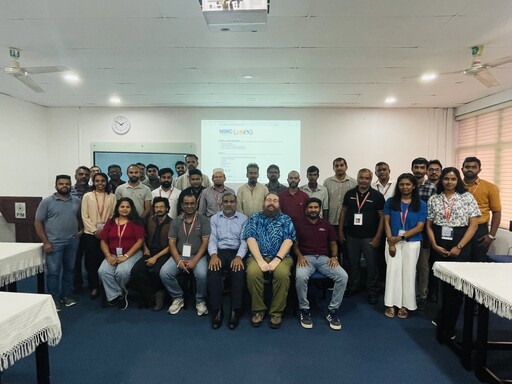|
## Workshop ##
|
* [Detailed Workshop Agenda](agenda.html) (includes links to presentations and schedule)
* Lab Access (workshop only)
* [Participants](participants.html)
* [Instructors](instructors.html)
* [Reference Materials](references.html)
* [Sponsors](sponsors.html)
* [Workshop survey](https://survey.nsrc.org/index.php/475536?lang=en)
* [Photos](https://photos.nsrc.org/)
* [NSRC training videos](https://learn.nsrc.org)
|

|
|
## Workshop Description ##
### _KINDNS: DNS & DNSSEC operational best practices to improve the DNS Ecosystem_ ###
DNS is not just for ccTLDs. This three-day hands-on workshop covers
best practices for effectively managing DNS & DNSSEC day to day in
deployments of all sizes. Participants learn about the KINDNS
guidelines -- best practices agreed on by DNS practitioners for
various classes of deployments: from authoritative leaf zones, to
large-scale shared public resolvers, to ccTLDs. This workshop is
aimed at anyone running a DNS server -- whether a recursive resolver
for themselves, an ISP, or an enterprise, or authoritative service for
one to a million zones. Everyone needs DNS.
The workshop will begin with a very brief refresher on the finer
points of the DNS & DNSSEC protocols (TTLs, signature algorithms,
EDNS0), but quickly move on to hands-on work, including:
* Monitoring production DNS servers
* Performance and capacity planning
* Preventing and recovering from DNSSEC disasters
* Key rollovers and algorithm rollovers
After this workshop, participants will have a better understanding of
how DNS servers work. And how they fail. And how to fix them when
they fail.
## Pre-requisites ##
__Minimum Experience__
This is a hands-on workshop taught in a virtual lab environment.
Participants are required to be familiar with DNS & DNSSEC theory and
basic systems administration. This workshop will not cover basics.
Participants are expected to bring a laptop and know how to use it.
The lab is taught in a virtual environment accessed via a web browser
and SSH.
Candidates should know how to install software packages in a Unix-like
or Linux environment, and be familiar with elementary systems
administration: starting and stopping processes, finding and examining
log files, etc.
**Please note: participants are required to bring laptops**
## Technical Requirements ##
Participants laptops/PCs must have:
* A modern web browser installed (Chrome/Firefox/Safari/Opera/Edge)

 # LKNOG 9: DNS Workshop #
* **Date:** July 21-25, 2025
* **Location:** Colombo, Sri Lanka
* **Host:** [Lanka Network Operators Group (LKNOG)](https://2025.lknog.lk/)
* **Venue:** [Postgradiate Institute of Management (PIM)](https://pim.sjp.ac.lk/)
# LKNOG 9: DNS Workshop #
* **Date:** July 21-25, 2025
* **Location:** Colombo, Sri Lanka
* **Host:** [Lanka Network Operators Group (LKNOG)](https://2025.lknog.lk/)
* **Venue:** [Postgradiate Institute of Management (PIM)](https://pim.sjp.ac.lk/)